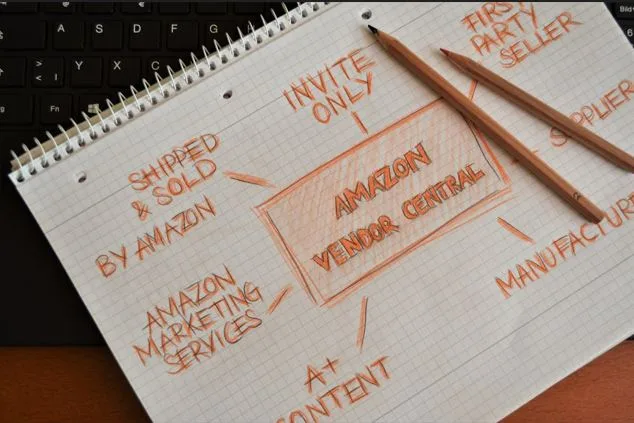Common Mistakes Sellers Make on Amazon and How to Avoid Them
Selling on Amazon offers immense opportunity but it also comes with intense competition, evolving algorithms, and a steep learning curve. Whether you’re a new seller or an experienced brand owner, the marketplace is full of challenges that can trip up even the most seasoned entrepreneurs. Unfortunately, even small missteps can lead to lost sales, poor visibility, or even account suspensions.
To succeed on Amazon, it’s essential to understand the most common mistakes sellers make and more importantly, how to avoid them. In this article, we’ll break down these pitfalls and provide actionable solutions to help you navigate the complexities of Amazon’s ecosystem.
- Ignoring Amazon SEO
One of the most frequent mistakes Amazon sellers make is underestimating the importance of SEO (Search Engine Optimization). Unlike Google, Amazon is a product search engine. If your listings aren’t optimized, customers won’t find your products no matter how great they are.
How to Avoid It:
- Conduct keyword research using tools like Helium 10, Jungle Scout, or Amazon’s own Search Term Report
- Include relevant high-volume keywords in your title, bullet points, description, and backend search terms
- Continuously test and optimize listings based on performance data
- Running Out of Stock
It may sound like a good problem to have—after all, running out of stock means you’re selling—but stockouts can destroy your rankings. Amazon’s algorithm penalizes products that go out of stock by lowering their search ranking, and sometimes that momentum is hard to regain.
How to Avoid It:
- Use inventory management software to forecast demand and avoid stockouts
- Monitor lead times closely, especially during peak seasons like Prime Day or Q4
- Consider Amazon FBA restock limits and plan accordingly to avoid last-minute disruptions
- Underestimating the Importance of Reviews
Social proof is everything on Amazon. A product with 100+ reviews and a 4.5-star rating will almost always outsell a product with fewer than 10 reviews—even if it’s better. Yet many sellers launch without a solid review strategy.
How to Avoid It:
- Use Amazon’s Vine Program (for brand-registered sellers) to gather early reviews
- Follow up with customers using automated email sequences (within Amazon’s TOS)
- Deliver exceptional product quality and customer service to naturally earn positive feedback
- Poor Listing Quality
Your Amazon product page is your storefront. Low-quality images, unclear bullet points, and weak product descriptions all hurt conversion rates. Shoppers need to be convinced instantly that your product is the right choice.
How to Avoid It:
- Invest in professional product photography and use all available image slots
- Use clear, benefit-driven copy in bullet points and product descriptions
- Leverage A+ Content (Enhanced Brand Content) if you’re brand-registered to better communicate value
- Overlooking the Buy Box
Winning the Buy Box is essential for making sales, especially if you’re in a competitive category. Many sellers ignore the factors that influence Buy Box eligibility, leading to lost revenue.
How to Avoid It:
- Keep your pricing competitive without compromising profitability
- Maintain a high Order Defect Rate (ODR) and excellent customer service metrics
- Use Fulfillment by Amazon (FBA), which often gives a higher chance of winning the Buy Box
- Mismanaging PPC Campaigns
Amazon Advertising (formerly AMS) is one of the most powerful tools available to sellers, but it’s also one of the most misused. Many sellers waste ad spend due to poor keyword targeting, lack of strategy, or by not analyzing their campaign data effectively.
How to Avoid It:
- Start with Automatic campaigns to gather data, then transition to Manual campaigns for precision targeting
- Regularly analyze your ACoS, ROAS, and TACoS to assess campaign health
- Neglecting to optimize PPC can eat away at profits, especially when ad costs rise
Working with specialists such as Trivium can help sellers avoid these pitfalls through data-driven account management and advertising support.
- Not Understanding Amazon’s Rules and Policies
Amazon has strict guidelines for everything from product listings to customer communication. Ignoring these rules can lead to listing suppression or worse—account suspension.
How to Avoid It:
- Stay updated on Amazon’s Seller Central policies
- Avoid manipulative practices like review gating, keyword stuffing, or incentivized reviews
- If something is unclear, reach out to Seller Support or consult with an expert before taking risks
- Failing to Monitor Analytics
Many sellers operate blindly—launching products or running ads without truly understanding their performance. Without digging into data, you can’t make informed decisions.
How to Avoid It:
- Use Amazon’s Brand Analytics, Business Reports, and Advertising Reports to track performance
- Set up KPIs (Key Performance Indicators) to monitor the metrics that matter most to your business (e.g., conversion rate, click-through rate, return rate)
- Look beyond top-line revenue. Analyze profitability, not just sales volume
- Lack of Brand Protection
If you’ve created a successful private label product, don’t be surprised if competitors or counterfeiters try to copy it. Failing to protect your intellectual property can put your brand at risk.
How to Avoid It:
- Enroll in Amazon Brand Registry to gain access to tools like A+ Content and report violations
- Consider trademarking your brand to protect it legally
- Monitor your listings regularly for unauthorized sellers and report them through Amazon’s tools
- Trying to Do It All Alone
Amazon is a complex, ever-changing platform. Many sellers attempt to do everything themselves—product research, logistics, customer service, advertising, optimization—which often leads to burnout and stagnation.
How to Avoid It:
- Focus on what you do best and outsource other parts of your business
- Use expert agencies and service providers to scale effectively
- Partnering with a team like Trivium gives you access to experienced strategists who manage everything from ad campaigns to listing optimization, freeing you up to focus on product development and business growth
Final Thoughts
Selling on Amazon can be incredibly rewarding but it’s not easy. The most successful sellers are those who learn from others’ mistakes, stay informed, and constantly optimize their approach. By avoiding these common pitfalls and partnering with experts when needed, you can position your Amazon business for long-term success.
Remember, Amazon rewards sellers who understand the rules of the game and play them well. Avoid shortcuts, invest in the right strategies, and surround yourself with professionals who can help you grow.



